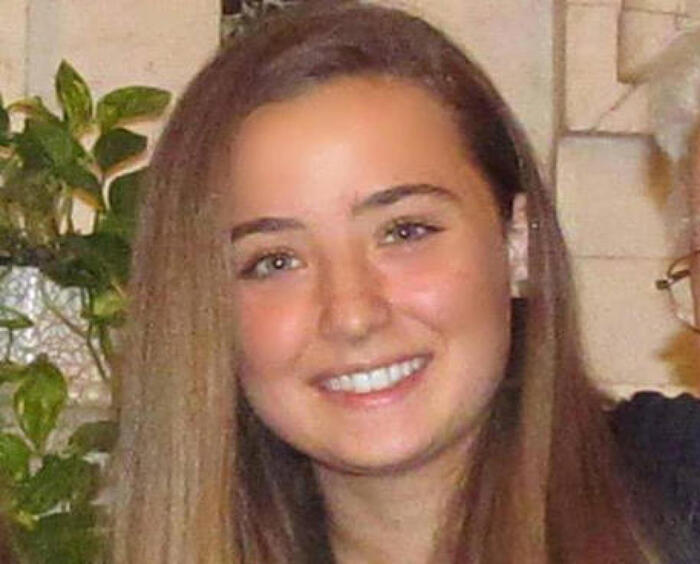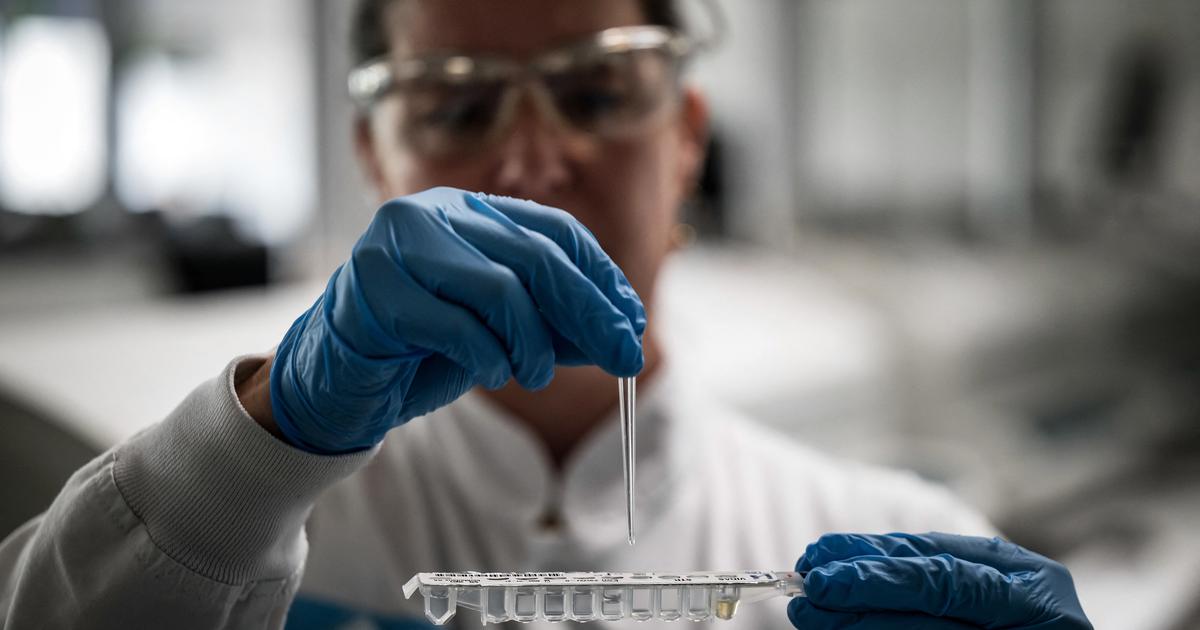Enlarge image
When will the drug against Covid-19 finally come?
Photo: Sasha Brazhnik / iStockphoto / Getty Images
"I don't know that from any other disease," said pulmonologist Cihan Celik from Darmstadt to SPIEGEL after treating his first Covid 19 patients.
That was more than a year ago.
In the meantime, the first impressions of hundreds of doctors have been confirmed: The disease, which has plunged the entire globe into an unprecedented pandemic, is insidious.
Anyone who is seriously ill with Covid-19 often looks fit at first - even if the body has long since ceased to be adequately supplied with oxygen and urgently needs additional ventilation.
Experts call the phenomenon "happy hypoxia", in German for example: happy despite a lack of oxygen.
And even those who seem to be spared the disease at first because only mild symptoms occur, are not immune to long-term consequences.
Some still feel weak months after the infection - even young adults suffer from the long Covid.
Why viruses are so difficult to fight
While the vaccinations against the coronavirus were being developed at record speed, the big breakthrough in drug research is still a long way off.
So far, there is no reliable cure for Covid-19, but it could significantly change the course of the pandemic.
Especially now that the number of Covid-19 patients in intensive care units threatens to reach a new record.
The fact that the virus - a tiny organic structure without its own metabolism - brings the world to its knees is due to the severity of the disease it causes.
If a drug could prevent severe courses of Covid-19, hospital beds would remain empty, deaths would be prevented, and public life could pick up again.
In short: the virus would lose its horror.
So when will the drug against Covid-19 finally come?
After all, doctors are no longer completely unprepared for the virus.
As with other diseases, today you can look up guidelines on how best to treat Covid-19 patients.
In particular, tried and tested agents such as the anti-inflammatory drug dexamethasone or the active ingredient heparin, which slows blood clotting, improve the chances of recovery.
Asthma spray could also possibly prevent severe Covid courses.
However, these drugs do not attack the virus directly, they simply relieve symptoms.
Especially in the early stages of the disease, doctors have little to hand on what to counteract the pathogen - a problem they are familiar with from other viral diseases.
Fear of severe side effects
In contrast to bacteria, which up to now could be reliably switched off with antibiotics, viruses are much more difficult to get at.
In contrast to bacteria, viruses do not reproduce by themselves. They hijack the host's body cells and force them to produce countless copies of the pathogen.
Because they cannot reproduce themselves, researchers even argue whether viruses are strictly speaking living things.
Attacking viruses directly is therefore of little use.
Instead, they would have to be prevented from entering the cells in the first place.
But because the pathogens use very different gateways, there is no all-round drug that blocks several types of viruses at the same time.
In addition, what harms the virus usually also endangers the body's cells.
The risk of side effects increases.
The pandemic is now accelerating the search for viral drugs - at least this has something positive about the corona crisis.
Hundreds of drugs are currently being researched.
Initially, experts were hoping for agents that have already been tested against other viral diseases.
Hydroxychloroquine, developed for the therapy of malaria and for which ex-President Donald Trump had massively advertised, ultimately did not prove to be sufficiently effective against the corona virus.
Even remdesivir, which was specially approved for the treatment of Covid-19 in the EU, did not meet hopes.
According to the Robert Koch Institute (RKI), the agent should only be used when patients need additional oxygen but do not yet need artificial ventilation.
Hope antibody cocktail
For a few weeks now, the European Medicines Agency (Ema) has also been recommending artificially produced antibodies for the therapy of Covid-19 - but this has not yet been approved.
The pharmaceutical company Roche announced on Monday that the antibody combination of casirivimab and imdevimab could reduce the risk of symptomatic corona infection by around 81 percent.
Roche developed the antibody cocktail - also known as REGN-COV2 - together with its partner Regeneron.
In the meantime, several pharmaceutical companies have developed drugs with monoclonal antibodies that are supposed to help Covid-19 sufferers.
Ema is currently analyzing four of these products, that of Regeneron / Roche and one each from Eli Lilly, Celltrion and GSK / Vir Biotechnology.
The approach is always similar: researchers use a natural antibody as a model, for example from someone who has recovered from corona, decode it in the laboratory and then reproduce it in large quantities.
The aim is to support the immune system in fighting the virus and thereby prevent a serious course of the disease.
According to the current state of knowledge, however, the drugs only help if they are used very early - ideally after contact with an infected person or within the first few days after a positive test.
And the means are expensive.
According to Health Minister Jens Spahn (CDU), the federal government paid 400 million euros for 200,000 doses of the antibody drugs, which corresponds to 2,000 euros per dose.
Treatment of Covid 19 patient can cost more than 40,000 euros
But if the drug actually prevents a severe course, the investment would pay off financially - quite apart from the individual benefit. The therapy of a Covid-19 patient in the hospital costs an average of 11,400 euros, shows an evaluation by the health insurance company AOK. If those affected have to be ventilated, the costs rise to more than 41,000 euros.
Antibody cocktails could therefore be an advantage, especially for infected people who are at high risk of becoming seriously ill.
The challenge, however, will be to treat them with it as quickly as possible.
The problem: the drug has to be administered intravenously, the patients hang on the drip for at least an hour.
This is hardly possible in a family doctor's practice.
"The drugs could be a further component in the fight against the pandemic," stated Marylyn Addo, head of the Infectious Diseases Section at the University Medical Center Hamburg-Eppendorf (UKE).
"But we do not expect the ultimate savior."
A tablet against Covid-19 and flu?
Meanwhile, other manufacturers are researching tablets against viral diseases that can be manufactured quickly and administered easily. At the beginning of the week, a Covid-19 patient received the active ingredient ATR-002 at the Berlin Charité for the first time. The remedy is supposed to stop the virus from spreading and regulate the immune system at the same time. The Federal Institute for Drugs and Medical Devices (BfArM) approved the phase II study.
In the coming weeks, 220 Covid-19 patients are to be included in the international study arm, who have a moderate to severe course but do not have to be ventilated.
Some of the test subjects receive the drug, the other a placebo.
"ATR-002 addresses both viral replication and the excessive immune response that we often see in patients with moderate or severe Covid-19," said the lead investigator of the study, Martin Witzenrath from the Berlin Charité.
The drug blocks a critical signaling pathway in the infected cells - according to the theory.
As a result, the building blocks of the viruses no longer get from the nucleus into the plasma of the cell, functioning pathogen particles can no longer be formed, the viral load in the body drops, and the patient becomes healthy again more quickly.
In addition, the agent counteracts a false reaction of the immune system, a so-called cytokine storm, which causes inflammation and in the worst case can be fatal.
Because the active ingredient does not attack the virus itself, but rather stops it from multiplying, the researchers hope that it will also work against possible mutations.
The search continues
If ATR-002 actually proves to be effective, it could also help against other diseases that are triggered by RNA viruses such as Covid-19.
Because these use very similar paths to spread.
The flu could then possibly be kept in check with tablets.
However, it remains to be seen whether the drug will actually work.
Several studies with possible corona drugs have recently flopped.
Just a few days ago, AstraZeneca stopped a phase III study with the diabetes drug Forxiga because there was no proven therapeutic benefit in Covid-19 patients.
"Although we were fortunate that vaccines were being developed at unprecedented speed, we urgently need effective therapies against Covid-19," warns Gernot Rohde, professor of respiratory medicine at the Goethe University Hospital in Frankfurt am Main.
"The pandemic situation remains very critical and is far from being under control."









